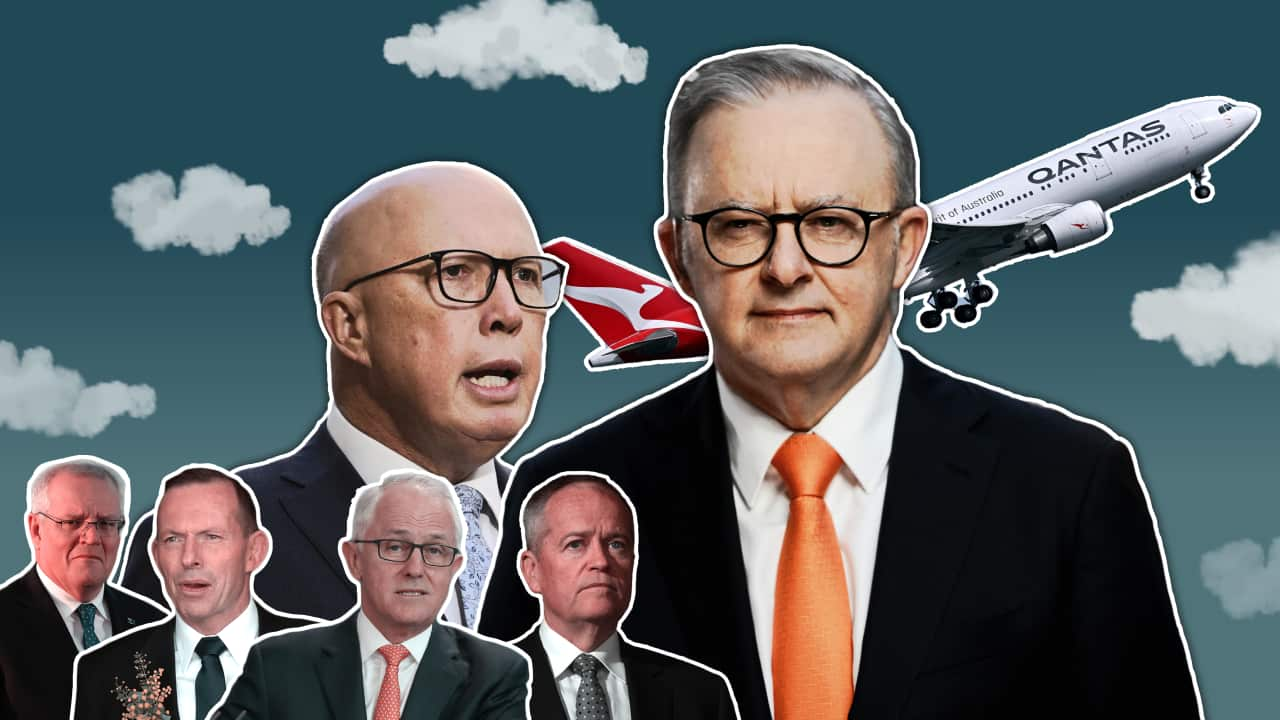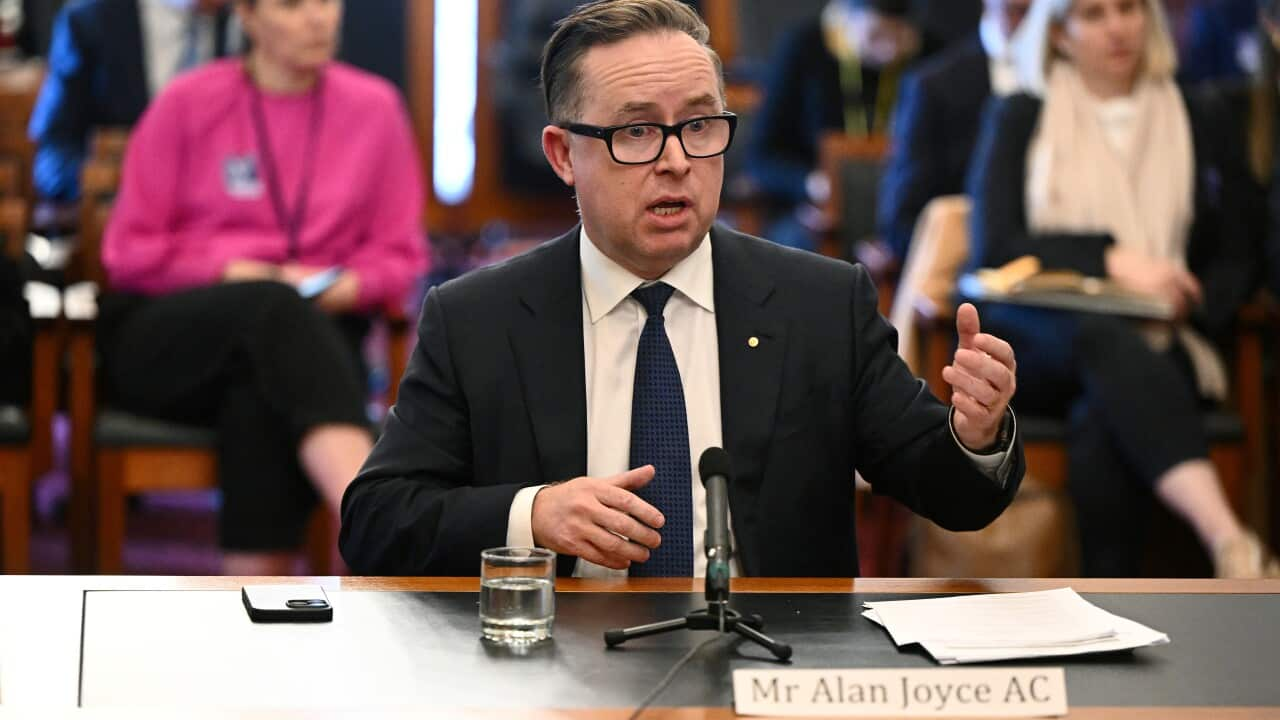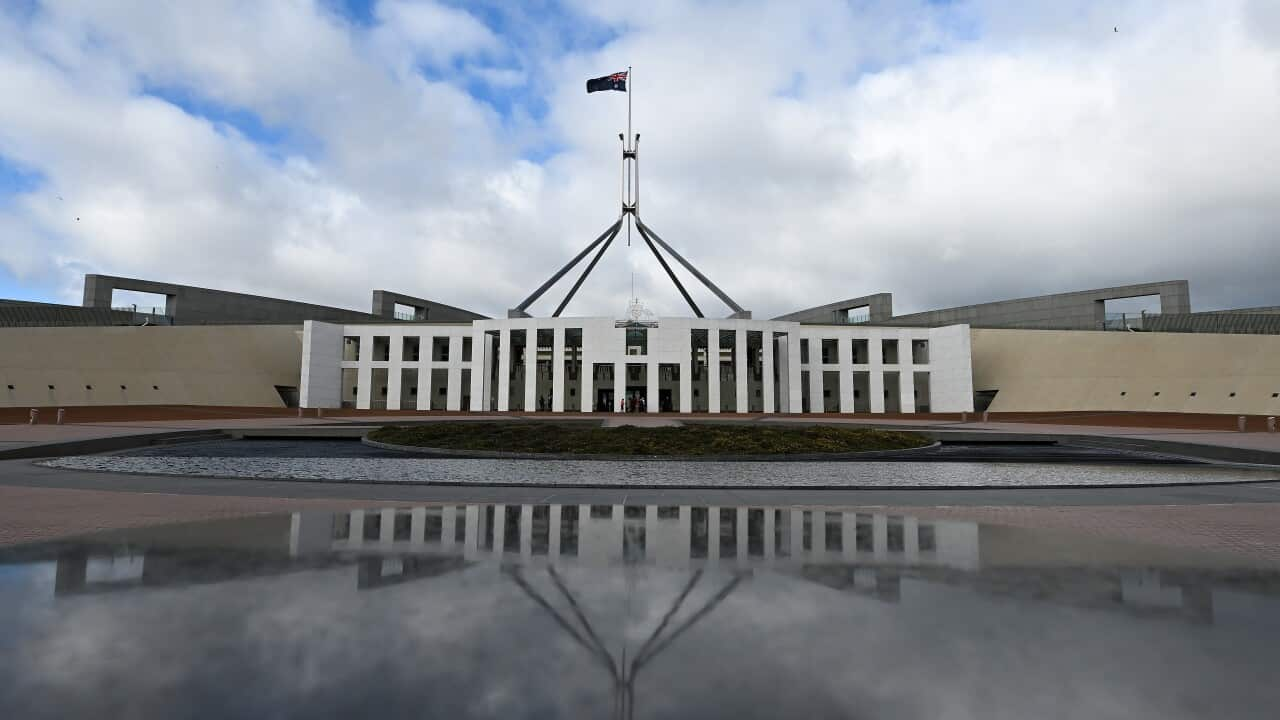Prime Minister Anthony Albanese was forced to defend his commitment to transparency this week, following reports he has accepted dozens of free Qantas flight upgrades.
Albanese maintains all his flights were "declared in the appropriate way".
He has struggled to shake criticism over his relationship with former Qantas CEO Alan Joyce, taking six days to concretely verify and deny he sought any upgrades by directly calling him.
Redbridge director Kos Samaras told SBS News that the polling group has already seen the effect of Albanese's flight perks on the public perception of the leader.
"Right now millions of Australians are doing it pretty tough, they expect some liberal empathy from the political class in the middle of this affordability crisis," he said.
Samaras said while Australians accept that politicians have privileges not available to the public, there's an "extra sting" during a cost-of-living crisis.
SBS has examined how perks vary and their impact on public perception of our political leaders.
What perks do politicians enjoy?
It is not unusual for politicians to receive perks. Parliamentary guidelines require all elected officials to declare gifts exceeding a value of $300, including family members.
An SBS News review of parliamentary declarations since the 2013 election revealed that the prime minister has accepted more concert and sporting tickets than his last three predecessors combined.
Leaning into his appetite for music, Albanese has declared ten concerts since being elected in 2022, including tickets to Taylor Swift, Elton John and the Foo Fighters.
Opposition leader Peter Dutton has also had a packed social calendar, receiving 21 passes to sporting events ranging from test cricket to various NRL games over the same period.
In contrast, former prime minister Scott Morrison only declared six NRL games, but many events were cancelled during his time in office due to the COVID-19 pandemic. He did retain bald eagle cufflinks from the US President in 2019, Donald Trump.
His predecessor, Malcolm Turnbull, accepted six theatre production tickets. He also paid $891 to keep a portable telescope and $596 for a glass bowl etched with an image of the White House from Trump.

Tony Abbott's registry was far smaller, paying to keep items such as a road bike for a pollie pedal charity ride and a surfboard during his time as prime minister.
It is evident that some politicians are more judicious with their declarations than others, Bill Shorten divulged 99 hotel room upgrades as opposition leader between 2016 and 2019 alone.
While others, like Bridget Mackenzie, have been forced to step back criticism this week and commit to updating their declarations after realising they enjoyed flight upgrades that may not have been declared.
What about flight upgrades?
Much of this week's furore in Canberra has been around the prime minister's Qantas flight upgrades during his time in the transport portfolio and as opposition leader.
Warren Truss is the only former transport minister other than Albanese to have accepted a flight upgrade while in the portfolio in the last decade, with five other MPs holding the position since 2013.
Albanese said at least 10 of the 22 reported flights took place in 2013, during a leadership ballot with Bill Shorten and were paid for by the Australian Labor Party.
The prime minister has faced criticism that a close relationship with the airline's former CEO Alan Joyce may have influenced his decisions over the industry while transport minister.
However, he highlighted that last year's call to block Qatar's requests to double its flights in Australia, favouring current providers like Qantas, was made by current transport minister Catherine King.
Deflecting criticism, the prime minister urged Dutton to explain three private flights sponsored by Gina Rinehart's Hancock Prospecting in 2022.
On Thursday, Dutton claimed that he requested the flights from Rinehart to attend a Bali bombing memorial service when he was unable to secure commercial flights, claiming he saved taxpayers $40,000.
"The cheaper option for the taxpayer was for my office to speak to Mrs Rinehart’s office as to whether the plane might be available. That was at zero cost to the taxpayer," he said.

Opposition leader Peter Dutton reached out to mining magnate Gina Rhinehart for private flights in 2022.
SBS News has requested comment from the prime minister’s office about a private helicopter ride to a lunch in Portsea in January 2023, courtesy of billionaire Lindsay Fox.
The impact of freebies on public trust
Samaras thinks Labor made a "big mistake" by pointing to private flights by Liberals and other politicians, stating the public holds Albanese to a different standard.
"The problem for Labor is there's an expectation within the public, particularly their base, that they should behave differently because they don't come from the same social class", he said.
"He's judged at a much higher level because he's a prime minister from a particular background," referring to Albanese growing up with a single mother in public housing.
Clancy Moore, chief executive at the anti-corruption organisation Transparency International Australia, said while disclosing gifts is a positive step, "transparency is not enough".
"The more substantive issue is the role of the private sector and the coziness with which many big businesses, like Qantas, have with our politicians," he told SBS News.
"If that influences government decisions, that's the bigger problem… it's how that intertwining sort of relationship… impacts our federal politics."
Moore maintains building trust does reduce perceptions of undue influence with our public officials, praising federal members like independent David Pocock for refusing lucrative perks like the Qantas chairman's lounge passes.
He said anyone in a ministerial role should avoid being "wined and dined" by vested interest groups to a particular position.
"You should always think very carefully about accepting any gift, any form of hospitality by a lobby group or a vested interest," he said.
"Because there is a perception that it may influence your decision against the benefit of the public and in favour of those interests."













